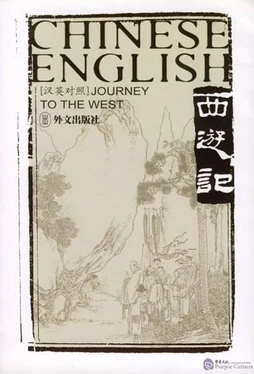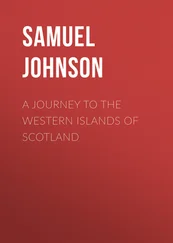Drum and bell can be heard from each other's distant towers.
In streets and markets the bustle is stilled;
In all the houses the lamps shine dimly.
Flowers in the breeze throw shadows under the moon;
The stars shine bright against the Milky Way.
Where the cuckoo sings the night seems deeper;
All natural sounds are stilled across the earth.
During the third and fourth watches of the night all the household servants in charge of various matters got up early to attend to their tasks. Just watch. The cooks preparing the banquet were busy in the kitchen. The people who had to buy coloured flags were bustling in front of the hall. Those engaging Buddhist and Taoist clergy were hurrying about as fast as their legs could carry them. Those hiring musicians were in a great rush. The messengers delivering invitations ran all over the place, while the servants preparing the carrying-chairs and horses were calling to each other. They were all shouting from the middle of the night until dawn, and by around ten o'clock everything was prepared. This was all because the family was rich.
The story tells how the Tang Priest and his disciples got up early to be waited on once more by that crowd of servants. The venerable elder told them to pack the baggage and saddle the horse. When the idiot heard that they were about to go he pulled a face, pouted and grumbled, but he still had to pack the clothes and begging bowls then go to look for the carrying pole. Friar Sand brushed the horse, saddled and harnessed it, and stood waiting. Brother Monkey put the nine-ringed monastic staff in his master's hand and hung the passport in a bag in front of his chest. They were now all ready to set out. Mr. Kou then invited them into the large hall at the back, where a feast was set out that excelled even the one they had eaten in the refectory.
Curtains hung from on high;
Screens stood all around.
In the middle was a picture:
A mountain of long life and a sea of blessings.
On both walls were displayed.
Scrolls of spring, summer, autumn and winter.
From the dragon-patterned tripod came clouds of incense;
Above magpie-tailed burners rose auspicious vapors.
In bowls were bunches of color,
Fresh and brilliant flowers of splendid form.
The tables were piled with gold:
Lines of confections shaped like lions and immortals.
Music and dancing before the steps were in true harmony;
The dishes in the hall were like a brocade.
Exquisite soup and rice, both free of meat;
The finest tea and the best of wines.
Although they were only commoners
Their home was fine enough for a prince.
All that could be heard were happy sounds
So loud they surprised the sky and shook the earth.
The venerable elder was just exchanging courtesies with Mr. Kou when a servant came in to report, “The guests are all here.” These were the people who had been invited-neighbors, relations by marriage, and some of his pious friends who also fed monks and recited the name of the Buddha-and all of them bowed to the venerable elder. After the greetings had been made everyone sat down. Outside the hall zithers and panpipes were played, while inside the hall pipas and songs accompanied the banquet. Pig paid great attention to this rich banquet.
“Brother,” he said to Friar Sand, “relax and eat as much as you can. There won't be anything as good as this to eat after we leave the Kou house.”
“Nonsense,” Friar Sand replied with a laugh. “As the saying goes,
No matter how splendid the banquet you eat,
For only a while can it keep you replete.
Your savings may meet the expense of the road,
But savings can never in bellies be stowed.”
“You're hopeless,” said Pig, “hopeless. If I eat my fill today I won't feel hungry for the next three days.”
“Idiot,” said Monkey, who had heard this. “Don't fill your belly till it bursts. We've got to start walking now.”
They were still talking, and it was almost noon when Sanzang raised his chopsticks and said grace. Pig grabbed a bowl, filled it with desperate speed, and ate five or six bowlfuls in succession, gulping down a whole bowlful at a time. Without any qualms at all he filled both his sleeves with steamed bread, twists, pancakes and cooked dishes before rising with his master. Sanzang thanked the gentleman and everyone else, then they all went outside together. Just look at the coloured banners, splendid canopies, drummers and instrumentalists outside. Only then did two groups of clergy, one Buddhist and one Taoist, arrive.
“Gentlemen,” said Mr. Kou, “you are late. Our teacher is in a hurry to leave, so I will not be able to offer you a meal. I'll show you my gratitude when we come back.” Everyone then opened a way to let them through, the carriers carrying their chairs, the riders on their horses and the walkers on foot all let Sanzang and his three disciples go first. The heavens rang with drumming and music, the flags and banner blotted out the sun, crowds pressed around, and carriages and horses were all packed close together as everyone came to watch Mr. Kou seeing the Tang Priest off. The splendor all around was more magnificent than pearls or jade, and no less fine than brocade screens behind which spring lies hidden.
The Buddhist monks playing Buddhist tunes and the Taoist priests their Taoist airs all escorted the travelers out of the prefecture. When they reached the three-mile pavilion, baskets of food and jars of drink were set out, cups were raised, and they all drank parting toasts.
Mr. Kou, loath to let them go, said as he choked back his tears, “Teacher, you must spend some more days with us on your way back with the scriptures to fulfil my longing.” Overcome with gratitude, Sanzang thanked him at great length.
“If I reach Vulture Peak,” he said, “and see the Lord Buddha the first thing I will do will be to praise your great virtue. We will certainly come to kowtow to you in thanks on our return journey.” As they talked they covered another mile or so without noticing it. Then the venerable elder insisted on taking his leave, at which Mr. Kou turned back, sobbing aloud. Indeed:
He who had vowed to feed the clergy found enlightenment:
He was not fated to see the Tathagata Buddha.
We will tell not of how Mr. Kou went home with everyone after seeing the travelers off as far as the three-mile pavilion, but of how the master and his three disciples went on for some twelve or fifteen miles. By now it was growing dark.
“It's late,” Sanzang said. “Where are we to spend the night?”
Pig, who was carrying the pole, pulled a face and said, “You would have to leave ready-cooked meals behind and refuse to stay in a nice cool brick house so as to go wherever it is we're going. That's just asking for trouble. It's very late now. What'll we do if it starts raining?”
“Evil, insolent beast,” cursed Sanzang, “complaining again. As the saying goes,
The capital may be remarkably fine,
But we can't linger here for a very long time.
If we are fated to visit the Lord Buddha, fetch the true scriptures, go back to Great Tang and report to the emperor I will let you eat in the imperial kitchens for years on end. Then, you evil beast, you will swell up till you burst. That will teach you to be such a greedy devil.” The idiot chortled quietly to himself, but did not dare say another word.
When Brother Monkey raised his eyes to look around he saw some buildings beside the road and asked his master urgently, “Can we spend the night here? Can we?” Sanzang went over to the place, where he saw a ruined memorial arch on which was inscribed
THE VIHARA OF PADMAPRABHA
“The Bodhisattva Padmaprabha was a disciple of the Buddha Sikhin,” said Sanzang, dismounting. “He was dismissed for eliminating the Demon King of Poison Fire and turned into the Spirit Officer of the Five Manifests. There must be a shrine here.” They then all went in together. The cloisters had all collapsed, the walls had fallen down, and there was no trace of anybody around, only of vegetation running wild. They would have gone out again, but the sky had filled with dark clouds and it had started to pour with rain. There was nothing for it but to find a place in the ruins where they could shelter from the storm. They kept completely silent, not daring to speak aloud for fear that some evil demon might hear them. Thus it was that they endured a sleepless night sitting or standing there. Oh dear! How true it is that
Читать дальше









